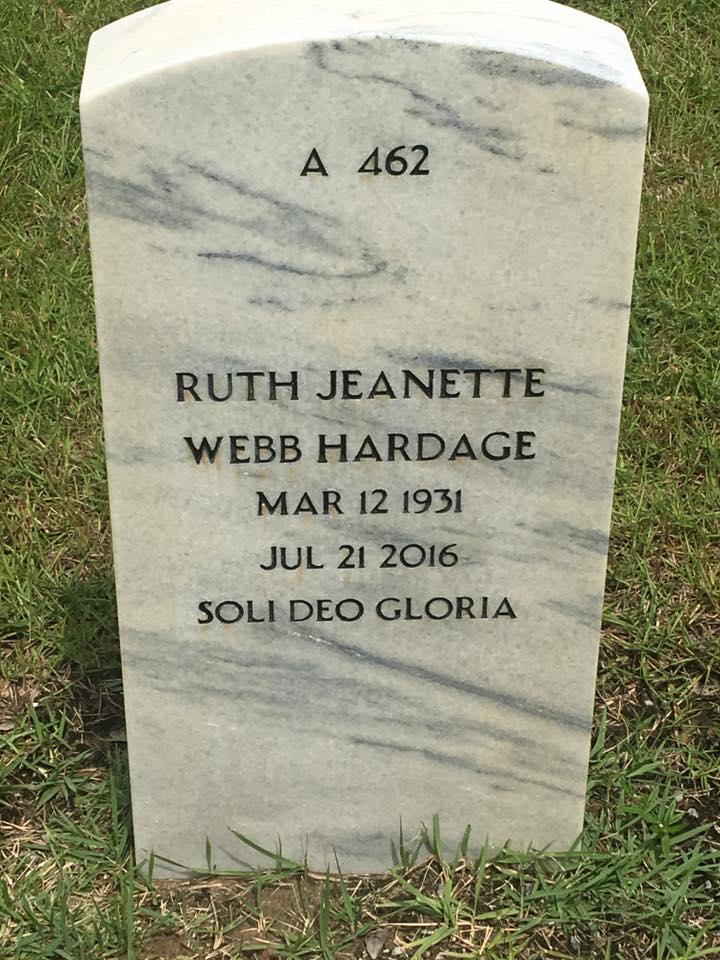
In an undated journal entry, Jeanette Hardage expressed the hope that her Christian identity would show through in all of her writing somehow, even when a book or article was not obviously sacred in nature. In the early 2000s, she began to foster this by marking her emails and published works with “S.D.G.” or “soli deo gloria,” which is Latin for “glory to God alone.” This phrase appears in the dedication of her biography of Mary Slessor, and is engraved on her headstone as a testament to her faith and commitment to God’s service.
Soli Deo Gloria was not just a slogan to Jeanette. Her life and writings often exuded an attitude of Christian devotion. In a December 2008 letter to one of her grandchildren, Jeanette wrote, “As I was having a bout of atrial fibrillation [irregular heartbeat] early this morning, I remembered that each new day is a gift from God and that I should use it to honor him and bless others in any way I can.” Although she said that every episode of heart problems reminded her of her own mortality, she emphasized that “I don’t dwell on doom and gloom but live each day out experiencing and sharing the joy of the Lord.” This approach to life is also brought out in her poem “After Seventy and Surgery,” included in the Faith and Other Matters collection, where she wrote that each new day is “another chance to thank God” and “another chance to serve God.”
Jeanette borrowed the “S.D.G.” habit from composer Johann Sebastian Bach, who had initialed his compositions with J.J. (Jesu juva, “Jesus, help!”) when he began them and S.D.G. when he finished. She wove this fact into another one of her poems, entitled “Bach,” in Faith and Other Matters: “What better prelude / than Help, Jesus! / and a coda / that sings with angels / Glory only to God.” May all of her readers get at least a glimpse of God through her work.